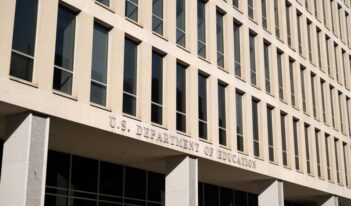
This Saturday Seminar explores the ways in which regulators shape the experience of students on- and off-campus.
What is the value of a college education? In the United States, education remains a strong indicator of employment prospects and earning potential. Some experts have suggested that a college degree could have around a 15 percent annual return on investment—a figure swallowing the average returns on investment for gold, bonds, and housing.
To that end, the next generation is entering higher education at unprecedented rates. The U.S Department of Education reports that more young women than young men now enroll in college since 2000, and overall college enrollment reached 40 percent of young adults in 2017 compared to 35 percent in 2000.
As these institutions increasingly shape the minds and careers of young adults, regulators today must grapple with issues facing higher education on both a large and small scale—from the accessibility of postsecondary education, to the treatment of students during their educational experience, and the rights of faculty members.
This week’s Saturday Seminar focuses on the ways that regulators have—or have not—worked to ensure that colleges and universities become accessible and equitable.
- The Education Department under Secretary Betsy DeVos has “delayed, watered down, or outright eliminated crucial regulations and guidance,” the Center for American Progress’s Laura Jimenez and Antoinette Flores argue. They claim the Education Department’s 2017 delaying and rewriting of the borrower defense to repayment rule, originally written to protect borrowers against for-profit colleges that defraud or mislead students, made it more difficult for such students to get loan relief. Jimenez and Flores also assert that a proposed rule from earlier this year would weaken federal oversight of colleges by offering federal funding to programs that fail to meet quality standards.
- In a recent article, Leah Butler, Heejin Lee, and Bonnie Fisher critique a proposal from the Education Department to amend regulations relating to campus sexual and gender-based violence. If published, the amendments would enhance due process rights for students accused of campus sexual and gender-based violence. But Butler and her coauthors argue that these protections would come at the expense of victims. Summarizing themes from public comments, Butler and her coauthors assert the proposal is a notable “departure from prior guidance, regulation, and research” that would ultimately “limit the scope of schools’ responsibility to respond to” reports of sexual and gender-based violence on campus.
- In a recent article, Harry Hozler argues that the Higher Education Act—the statute that authorizes the Education Department to handle federal student financial aid and collect data from higher education institutions—could better serve students enrolled in certificate and occupational associate degree programs. By providing community colleges better funding and incentives to respond to market signals, students attending these schools would fare better in the job market, Hozler explains. He asserts that the Act should encourage community colleges to provide more classes and employer partnerships for high-demand fields such as health care and information technology.
- In a recent UC Davis Law Review article, Jonathan Glater of the University of California, Irvine School of Law warns that “the failure to grapple with the difficult question of quality of education threatens the quality of democracy.” The Education Department under President Barack Obama assessed the quality of education offered by institutions of higher learning by focusing on student financial outcomes, including the debt–income ratio for students who had taken out loans to attend college and the rate of default on those loans. Glater argues that it such an approach is misguided. Instead, Glater advocates for a more expansive assessment of education quality that includes an assessment of institutional commitment to student success.
- A committee of the American Association of University Professors updated its recommended institutional regulations on academic freedom and tenure in 2018. The publication suggests internal protections and procedures to govern how institutions of higher learning treat the academics they employ, including bans on “unconstitutional discrimination by the institution, or discrimination on a basis not demonstrably related to the faculty member’s professional performance” and grievance procedures against faculty members.
The Saturday Seminar is a weekly feature that aims to put into written form the kind of content that would be conveyed in a live seminar involving regulatory experts. Each week, The Regulatory Review publishes a brief overview of a selected regulatory topic and then distills recent research and scholarly writing on that topic.



